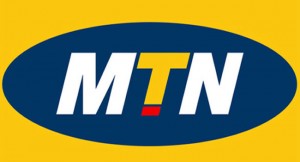President Muhammadu Buhari has enjoined the Nigerian media and the youth to help improve the Nigerian economy by partaking in national discourse aimed at formulating sound economic ideas.
The president made the call on Monday in Abuja at the public presentation of a book titled; "The Famous Call’’, written by a Senior Editor with the Voice of Nigeria (VON), Mr Edwin Akwueh, on Monday in Abuja.
A reports shown that the book focused on the new direction of Nigeria after the March 28, 2015 presidential elections.
Represented by Sen. Ita Enang, the Senior Special Assistant to the President on the Senate, Buhari said that the Nigerian media and youths had immense contributions to make towards bringing the nation’s economy out of the woods.
"Let me appreciate and charge the media and the youths to join the discourse of addressing the Nigerian economy from currency evaluation, shift of emphasis from petro-dollar economy to an economy that is defined and sustained by agricultural products, exports of agricultural products, when we have produced enough for domestic consumption and the products of other goods of Nigeria and Nigerians.
"We charged authors to write to encourage value addition to our crude oil, to increase our local refining capacity, refining what we consume and refining in excess to export to earn dollar and save our foreign exchange from import of petroleum products.
"We should write and create confidence in all our domestic markets and local products and in our educational institutions.
"We should also write and encourage what Nigerian youths and other unemployed should do to have gainful employment and earn a living.’’
The president also said that he was pleased with the author of the book and treasured every Nigerian who stood out in their various callings.
In his remarks, Edwin Akwueh, the author of the book, said that what gave him the inspiration to write the book was the former President Goodluck Jonathan’s acceptance of defeat. following the outcome of the 2015 presidential election.
According to him, the acceptance of the election results by an incumbent president, as demonstrated by the phone conversation between Jonathan and Buhari, was a milestone in Nigerian democracy.
"Just like the name implies 'the famous call', it is famous because the book itself focused mainly on the telephone conversation between the former President of Nigeria, Dr Goodluck Ebele Jonathan, and the current President Muhammudu Buhari on March 31 2015.
"The inspiration came at the international conference centre when the results were being collated.
"We had gist that President Jonathan had called Buhari at around 5:15 p.m. to concede defeat.
"It dropped in my heart that it should not end like this, there should be something to remember. So what do I do?
"Beyond the news writing of what transpired, there should be a comprehensive work on what happened all through the 2015 election experience.
"The famous call is a call to end impunity, to end corruption and to end every anti-democratic element in Nigeria and Africa.
"At the moment, it is a book but it is an advocacy beyond a book because there is a website being launched this week www.famouscall.com.ng
"Our mission is to galvanise African youths, emerging leaders to see that we end all these issues that are against democracy and promote tenets of democracy and the hallmarks of democracy that the famous call promoted on March 31. ‘’
Akwueh said that other African countries should take a cue from Nigeria on how true democracy should be practised.
"Africans should understand that in any game you play, any venture you enter, it is either you win or lose.
"So, we should exercise patience and be tolerant and not get into acts that will jeopardise ourselves and others because of our selfish ambition.’’
Reviewing the book, the book reviewer, Dr Uche Nwankwo, said that the book was a call for courage, vision, political maturity, statesmanship and morality, adding that politics must be played with statesmanship to end impunity.
Nwankwo, a lecturer in the Political Science Department, University of Ibadan, commended former President Goodluck Jonathan for exhibiting high level of maturity which helped to save the country from anarchy.
"The famous call is an appeal to our leaders to make sacrifices that will save lives, enhance our democracy, and make our people the champions of democracy that will harvest the dividends of democracy,‘’ he stressed.
(NAN)
